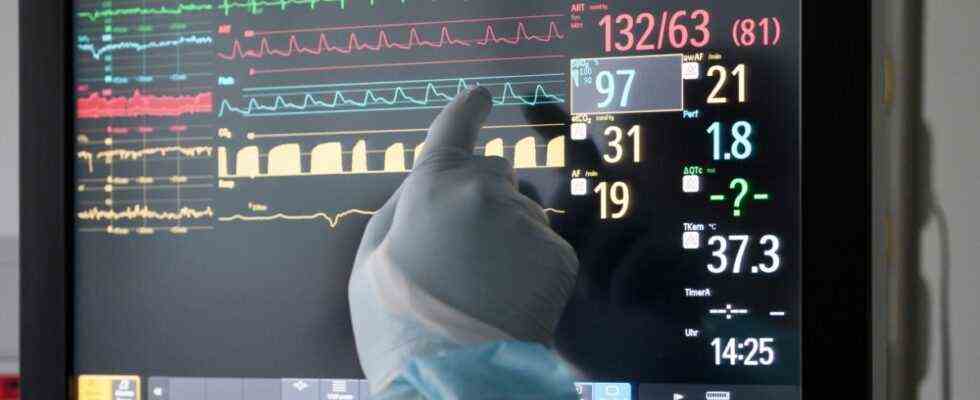In case anyone needs one more indication of how bad things are after the summer of displacement and autumn of hesitation in the pandemic – here it is: The triage discussion is back. So about the tragic choice that clinics have to make when too few intensive care beds are available for too many Covid patients who rely on ventilation. A year and a half ago, at least for Germany, this was a rather theoretical debate. Today it is literally a matter of life and death.
After all, the early examination of the consequences of overloading the health system led to criteria being drawn up. As early as March 2020, the medical societies presented clinical-ethical recommendations for the “allocation of resources in emergency and intensive care medicine”. In the next few months, the Federal Constitutional Court will also decide whether triage needs to be regulated by law.
Older people in particular fear that in an emergency they will have to give way to the young and healthy. In fact, the overriding principle of prioritization aims to expressly avoid any discrimination based on age. The “clinical chance of success” is decisive. Those who, according to a doctor’s assessment, have a higher probability of survival enjoy priority, regardless of whether this life will statistically last five or 50 years. A prioritization “solely on the basis of calendar age” is therefore not permitted, it is therefore expressly stated in the recommendations.
Admittedly, these criteria cannot hide this fact either: in fact, the competition between young and old is likely to be in favor of the younger generation. In the recommendations, for example, there is talk of the “better overall forecast”, which can play a role in prioritization. Elsewhere, “frailty” is also mentioned. What is decisive, however, is that it is not the date of birth in the ID that decides, but the result of a medical examination. Because above all there is a constitutional principle: life must not be weighed against life. That is a requirement of human dignity. There must be no hierarchy based on a “life value”. The goal is to save as many lives as possible – and not as many years of life as possible.
The details are still controversial. Can the “clinical prospects of success” also be used if a patient with poor survival prospects is already on the ventilator? Does he have to clear the bed when someone with a better chance is brought in? Can he be left to die?
Relevant voices consider this to be highly problematic or even inadmissible, including the German Ethics Council and its former member Reinhard Merkel, professor emeritus for criminal law and legal philosophy. “Such a legal obligation to accept the (active) sacrifice of one’s own life for and by third parties cannot be legitimized under any aspect,” wrote Merkel. A group of criminal lawyers – Karsten Gaede, Michael Kubiciel, Frank Saliger and Michael Tsambikakis – argued last year that such a fatal bed swap should be made possible at least with a “significantly better chance of success”.
Recently, unsurprisingly, the question has also been raised: What about the unvaccinated? Don’t they have to stand back when the intensive care beds are needed for vaccinated patients? Because they are the main culprits for the overloading of the clinics? The philosopher Martin Hoffmann recently called this in the FAZ a fair distribution of risks.
In the case of triage, unvaccinated people could lose out – in fact
It is of course unlikely that such an extreme position could prevail. The health system knows no “guilt principle” for life-saving measures, the ethics council chairman Alena Buyx immediately made clear. Otherwise motorcyclists and extreme athletes would have bad cards in the event of an accident. Certainly, a single crashed base jumper does not push the health system to its limits – but neither does a single unvaccinated person. Asking at the clinic gate who bears how much responsibility for his illness would reveal a fundamental principle of solidarity.
But here, too, the following applies: In the event of triage, unvaccinated people could still be left out – purely factually. Because your risk of death is significantly higher if you contract Covid-19. The probability of survival – the decisive criterion – is likely to speak more often in favor of accepting vaccinated persons.

